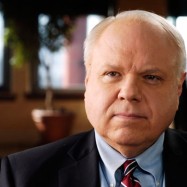
Mattea Kramer
The fiscal cliff is an opportunity for lawmakers to do the serious budget planning that they’ve avoided in recent years. In a perfect world, they would cancel the automatic cuts of
sequestration and instead negotiate a long-term budget deal that addresses three key areas of the budget: health care costs, military spending and tax revenue. We could reduce health care costs without cutting benefits by phasing out our fee-for-service system and paying for performance instead. We could save many billions of dollars annually by spending more wisely on the Pentagon. And currently federal tax revenue as a share of the economy is at its lowest point in more than half a century. That fact ought to be a wake-up call: We’re not bringing in enough revenue to fund key priorities. It would be wise to limit credits and deductions and allow parts of the Bush-era tax cuts to expire.
And as they put together a long-term budget deal, it’s crucial that lawmakers not lose sight of the millions of unemployed Americans. Federal emergency unemployment benefits expire at the end of the year; those benefits should be extended so that the most vulnerable Americans aren’t hit with yet another devastating setback. With the economy still so fragile, deficit reduction is a long-term objective, while supporting our economic recovery is an urgent matter.
Mattea Kramer is a senior research analyst at the National Priorities Project. She is lead author of the new book A People’s Guide to the Federal Budget. Kramer recently wrote about how the fiscal cliff isn’t as dreadful as the media makes it out to be, and answered questions about the the Ryan budget in August.












